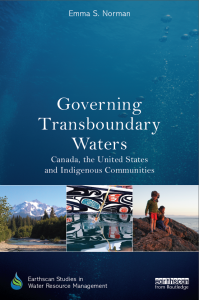Congratulations to PoWG member Sameer Shah for successfully completing his MSc in Resource Management and Environmental Studies!
Sameer was supervised by Dr. Leila Harris and Dr. Hisham Zerriffi, and conducted his fieldwork under the guidance of Dr. Leonora Angeles. Sameer’s research focused on the intersection of farming livelihoods, changes in water access, and adaptation in the Philippines. His thesis is titled “Water variability, livelihoods, and adaptation: a case study from the Angat River Basin (Philippines)” and is available ONLINE.
Sameer is now commencing his PhD at IRES, UBC, where he will continue to work with the PoWG team.
Thesis Abstract: In the Global South, agrarian households face stressors to smallholder agriculture – a primary livelihood for many. One stressor increasingly documented is the re-allocation of surface irrigation for domestic and industrial uses. This is concerning because the timely, adequate, and predictable provision of irrigation was designed to enhance crop production and protect smallholders from hydro-climatic variation. Chapter 2 of this thesis examines a case from the Angat River Basin (Philippines) where a systematic set of rules have restructured reservoir governance to privilege domestic water use in Metro Manila over irrigation for regional rice farming. A review of multiple secondary datasets and an analysis of household surveys (n = 124) and interviews (n = 70) in a rice-farming municipality (Bustos) reveals that restructured reservoir governance arrangements now interact with existing effects of climatic variation to undermine the intended benefits of irrigation. Based on the nature of irrigation service change, Chapter 3 argues that on- and off-farm efficiency measures alone are insufficient to protect households from risks of irrigation insecurity. Moreover, access to water alternatives is limited and increasingly uncertain. This suggests complementary and alternative (CA) livelihood activities are increasingly important as risk mitigation measures given irrigation service change and broader social-ecological stressors. All too often however, standardized livelihood activities promoted by governments encounter resistance, rejection, or are rendered irrelevant. One reason why proposed activities fail is because they do not align or overlap with certain CA activities that households are able and willing to engage in (termed here as “decision spaces”). Chapter 3 provides an integrative framework that allows policy-makers to better understand how contextual factors – from land-use regulations to cultural aspirations – constrain or widen household “decision spaces.” The framework is applied to Bustos providing direction for adaptation policy to i) promote CA livelihood activities that are both relevant and palatable to households; and to ii) challenge certain constraints to enlarge the set of activities household could engage in. Overall, this thesis represents an analysis of irrigation re-allocation as one facet of social ecological change in the Angat River Basin and provides measures for accommodating change effects through substantive recommendations for adaptation policy.




 Norman, E.S. (2015) Governing transboundary waters: Canada, the United States and indigenous communities. New York, Routledge.
Norman, E.S. (2015) Governing transboundary waters: Canada, the United States and indigenous communities. New York, Routledge.